Does Battery Affect Power Steering? Expert Insights!
When it comes to power steering, especially on vehicles that use electric power steering systems, the vehicle battery does have a say. So, if you ask us “Does battery affect power steering?” we would say, yes, it does.
Let us explain more about the connection between the vehicle battery and the power steering system of a vehicle.
How does Power Steering Work?
Power steering works by using hydraulic or electric systems to assist the driver in turning the vehicle’s wheels.
In a hydraulic system, when the driver turns the steering wheel, a pump sends hydraulic fluid to a piston that helps move the wheels
This system is powered by the car’s engine and makes steering significantly easier compared to traditional manual steering.
In contrast, Electric Power Steering (EPS) uses an electric motor to provide the steering assistance.
This system is more energy-efficient as it only works when steering assistance is needed, unlike the hydraulic system that runs continuously with the engine. Due to this advantage, EPS is designed in most modern vehicles.
Both systems have their unique components, like the power steering pump in hydraulic systems or the electric motor and sensors in EPS.
These components are crucial for the smooth functioning of the power steering system. Remember that your practices, such as checking hydraulic fluid levels or ensuring the proper functioning of the electric motor and its connections, will be really beneficial for reliable operation.
Understanding how power steering works is key to diagnosing issues like increased steering effort or unusual noises during steering.
Proper knowledge of this system enhances driving safety and vehicle longevity.
Does Battery Affect Power Steering?
Yes, the battery can affect power steering, especially in vehicles equipped with electric power steering (EPS) systems. Although it has considerably less impact on hydraulic vehicles, the vehicle battery is still important for hydraulic power steering as well.
How Vehicle Batteries Affect Electric Power Steering Systems?
In cars with EPS, the power steering is directly dependent on electrical power, unlike traditional hydraulic systems. The electric motor that provides steering assistance draws its power from the car’s battery.
Therefore, if the battery is low or failing, it may not supply enough power to the EPS system. Consequently, there will be reduced steering assistance or complete failure of power steering. So, you will feel that it is difficult to turn the steering wheel.
How Vehicle Batteries Affect Hydraulic Power Steering Systems?
In traditional hydraulic systems, the battery’s impact is less direct but still important. While the power steering pump is driven by the engine, the battery is crucial for starting the engine.
When there is a weak or dead battery, the engine won’t start, which in turn means the power steering pump won’t operate. However, once the engine is running, the power steering system’s performance isn’t directly affected by the battery’s condition.
So, before trying to rebuild or replace the power steering pump, we recommend checking the battery first.
How to Diagnose Battery-Related Power Steering Issues in Modern Cars?
If you suspect the battery is causing power steering issues in your vehicle, here is how to confirm it.
- The first thing we recommend is to use a multimeter to measure the battery voltage. A fully charged battery should read around 12.6 volts when the engine is off. A reading below 12 volts indicates a weak battery that may not be providing sufficient power to the power steering system.
- Look for loose or corroded battery terminals. Poor connections can lead to insufficient power supply to the power steering system.
- Pay attention to power steering warning lights or check engine lights, which can indicate a problem with the power steering system, potentially related to the battery.
- Start the vehicle and test the steering at various speeds. If the steering is intermittently heavy or difficult, especially at lower speeds, it could be a sign of power steering issues related to a weak battery.
- A load test will determine how well the battery performs under typical operating loads. A failing battery might not handle the demands of the power steering system, especially at low RPMs or when the battery is under load.
- Ensure the alternator is charging the battery correctly. An underperforming alternator can lead to a drained battery, affecting the power steering system.



My name is James, I work as an Automotive Designer with 9 years of experience. I also work as a mechanic and vehicle inspector. I love deciphering complicated car exteriors and interiors and resolving fluid and oil troubles. InstaMotoring.com is here to help you troubleshoot your car with dependable and expert help.

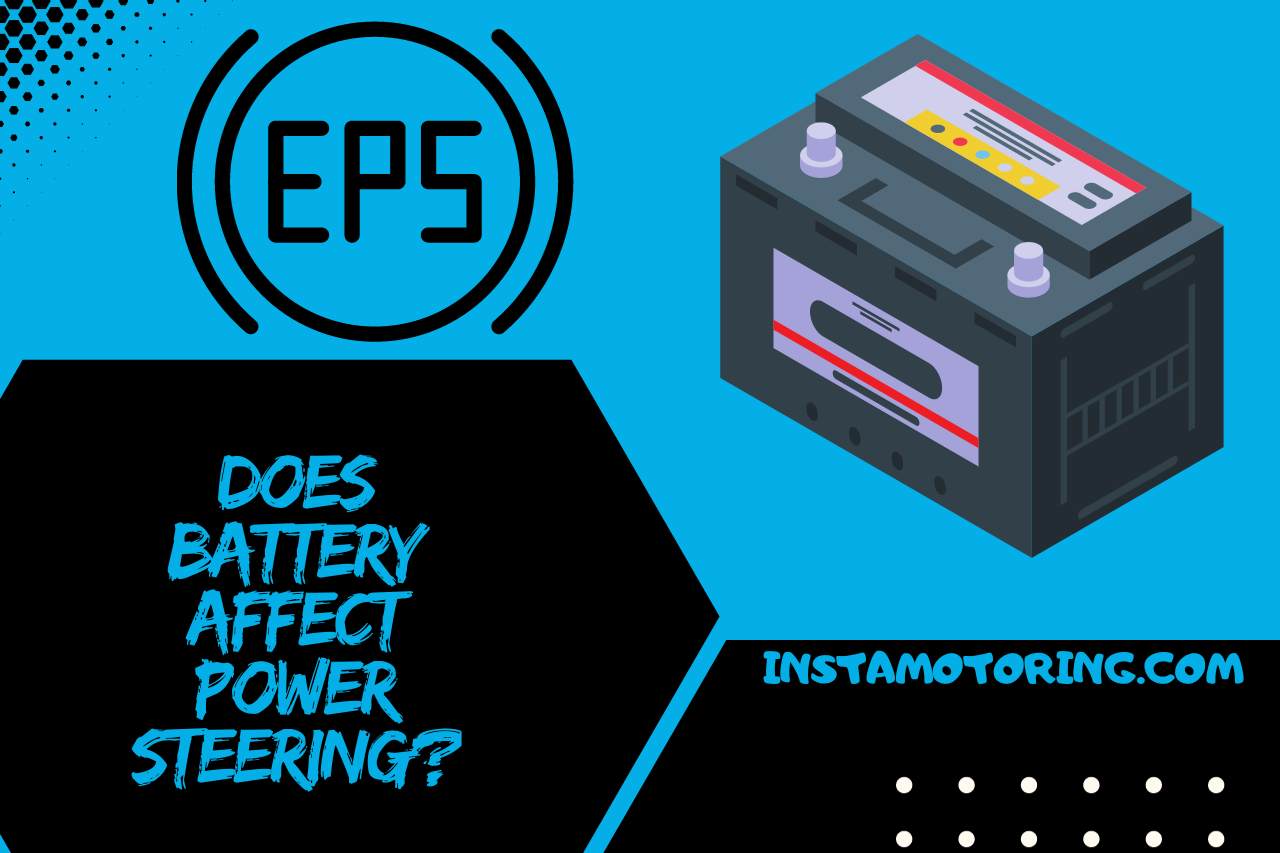
![Steering Wheel is Peeling [Causes and Fixes]](https://www.instamotoring.com/wp-content/uploads/2023/10/why-does-my-mattress-move-away-from-headboard-12-768x512.jpg)
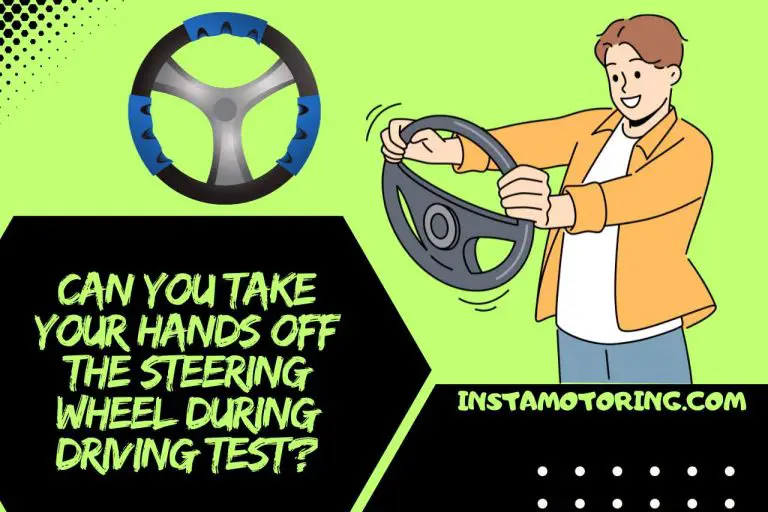
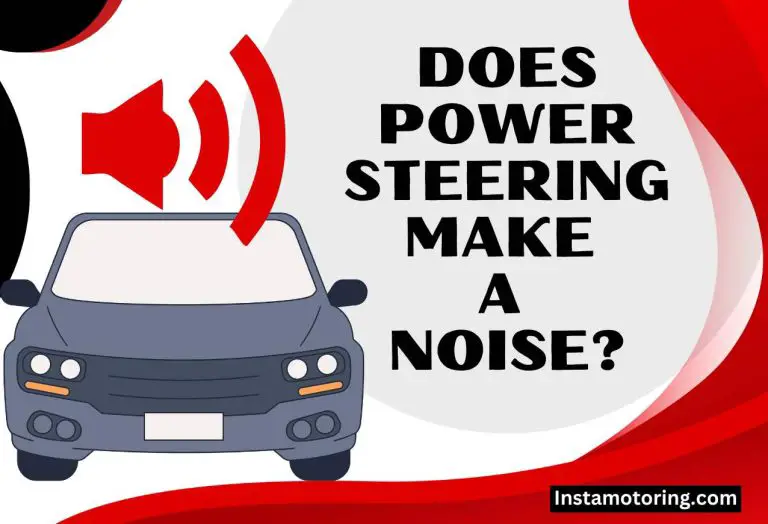
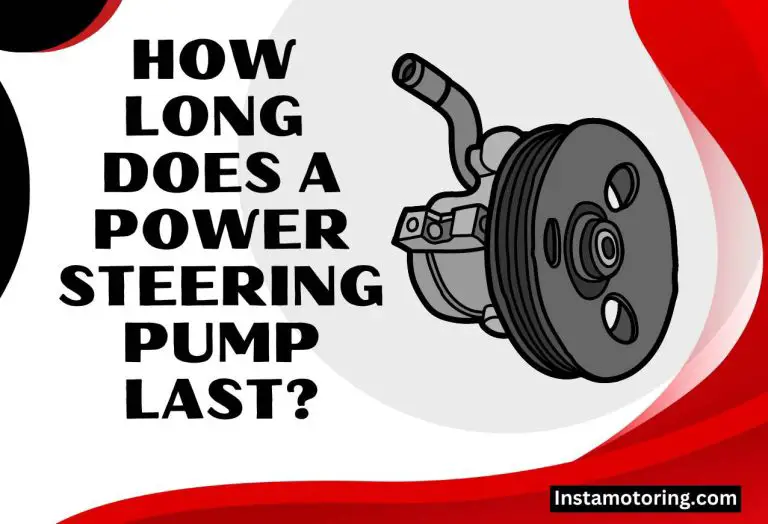
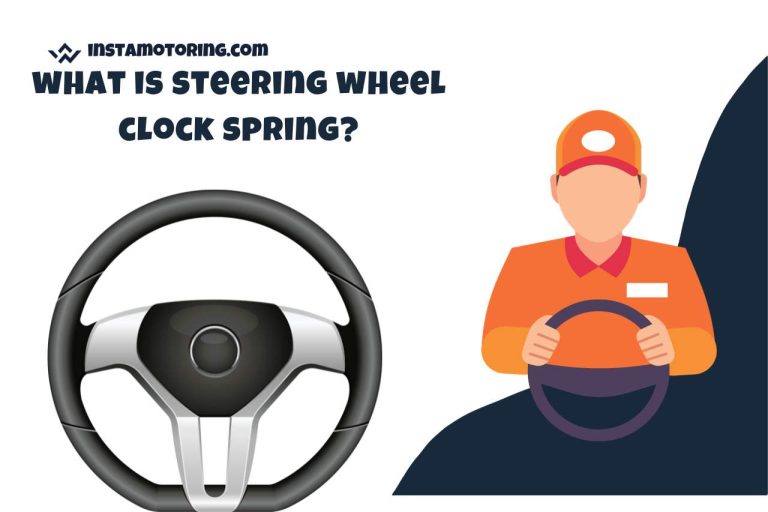
![Steering Assist Fault Service Required [Causes and Fixes]](https://www.instamotoring.com/wp-content/uploads/2023/08/when-you-update-your-iphone-does-it-delete-everything-8-768x512.jpg)